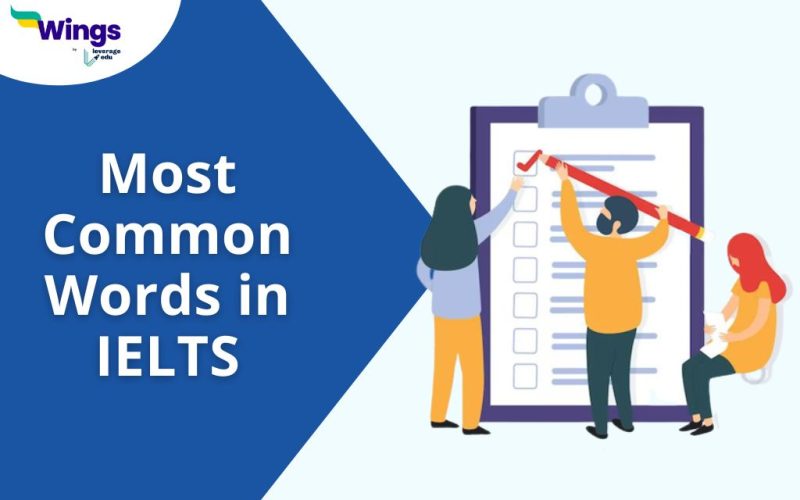The International English Language Testing System (IELTS) is a widely recognized examination that assesses the English language proficiency of non-native speakers. Vocabulary plays a crucial role in achieving a high score in the IELTS.
In this blog, we will explore the most common words encountered in the IELTS, providing a comprehensive guide for test-takers. The essay will be structured with subheadings to categorize the common words according to their usage and context.
Also Read: How to Prepare for IELTS?
10 Most General Vocabulary Words
The IELTS requires a strong command of general vocabulary words that are commonly used in daily life. These words are essential for understanding and communicating effectively in various situations. Some common words in this category include
| Word | Meaning |
| Essential | It is important to grasp words that describe the necessity or significance of something, such as crucial, vital, or necessary |
| Acquire | This verb indicates the act of obtaining or gaining something, be it knowledge, skills, or possessions |
| Consequence | This word refers to the result, outcome, or effect of a particular action or event |
| Facilitate | Understanding words like assist, aid, or help, which fall under this category, is crucial for expressing the act of making something easier or more accessible |
| Enhance | Words like improve, boost, or strengthen are used to describe actions that make something better or more advanced |
| Significant | It is important to recognize words that convey importance or notability, such as notable, important, or substantial |
| Cope with | This phrase is used to express the ability to handle or deal with challenges or difficult situations |
| Expose | Understanding words like reveal, uncover, or disclose is necessary to express the act of making something known or visible |
| Engage | This word denotes involvement, participation, or interaction with someone or something |
| Adapt | Knowing words like adjust, modify, or change is crucial for expressing the ability to alter oneself or one’s behavior to suit a new situation |
Also Read: 100+ Common Metaphors with Meanings
Importance of Knowing Common Words for IELTS
Knowing common words for the IELTS is of utmost importance for several reasons. Some of the reasons are mentioned below:
- A strong vocabulary enhances comprehension. By understanding common words, test-takers can grasp the meaning of reading passages, audio recordings, and questions more effectively. This, in turn, enables them to answer accurately and efficiently, increasing their overall score.
- Vocabulary plays a crucial role in writing and speaking tasks. A wide range of vocabulary allows candidates to express their ideas precisely, use appropriate terminology, and convey their message effectively. This demonstrates their language proficiency and can result in higher scores in the writing and speaking sections.
- Moreover, an extensive vocabulary enhances the ability to paraphrase. Paraphrasing is essential in the IELTS as it demonstrates language flexibility and avoids repetitive language use. Being able to restate information in different ways not only showcases language skills but also enables candidates to accurately convey their understanding of the given content.
FAQs
Common words are important in the IELTS for several reasons. Firstly, they form the foundation of language comprehension. By understanding and recognizing common words, test-takers can comprehend reading passages, audio recordings, and questions more effectively. This is crucial for achieving a high score in the reading and listening sections.
Learning and remembering common words for the IELTS requires consistent effort and practice. Try to understand the meaning of new words based on the context in which they are used. This helps with retention and understanding of usage. Use new words in your speaking and writing practice. This helps with memory retention and understanding of appropriate usage.
While knowing common words is important for the IELTS, it is not sufficient on its own. The IELTS assesses language proficiency across various skills and contexts. It is essential to have a well-rounded vocabulary that encompasses both general and academic words, as well as idiomatic expressions and phrasal verbs.
Candidates who want to prepare for IELTS or any other language proficiency test, can Build a plan with Leverage Edu‘s Leverage Live classes and our top trainers and strengthen your English score as well as your application so that you can secure your spot in your dream college.
Fulfil your dreams of studying abroad with Leverage Edu, to get a free counselling session, reach us at 1800572130.
 One app for all your study abroad needs
One app for all your study abroad needs
















 45,000+ students realised their study abroad dream with us. Take the first step today.
45,000+ students realised their study abroad dream with us. Take the first step today.